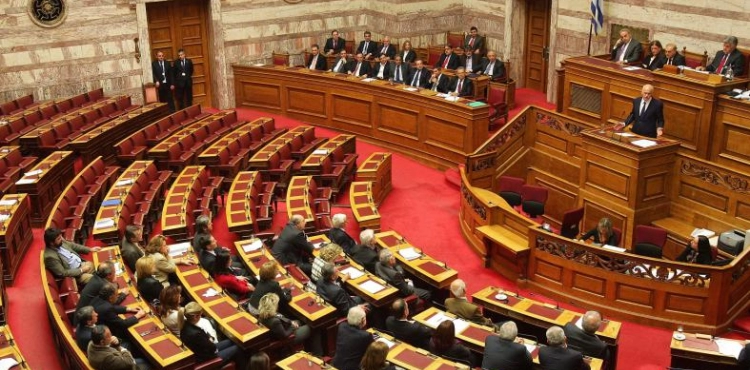The Greek parliament on Wednesday voted on a law demanding that the government formally move to obtain financial compensation from Germany for crimes committed during the Nazi occupation in a case Berlin has long opposed.
"The parliament calls on the Greek government to take every diplomatic or legal action to meet the Greek state´s demand for the first and second world wars," the resolution said.
The majority of deputies, from the ruling leftist party Sereza, led by Prime Minister Alexis Tsipras, voted in favor of the ruling party, the new right-wing opposition parties and the Social Kinal.
"It is a historical and moral duty, a duty to commemorate the heroes of the past ... especially at this time when the extreme right, the national trend and racism thirsten Europe," Tsebras told parliament.
Under the law, the government will send a "memorandum to Germany" to open the dialogue on this issue.
The financial compensation that Greece seeks for the crimes committed by the Nazis during the occupation of the country (1941-1944) is a matter demanded by all previous governments from the right or socialists.
The issue was re-introduced during the debt crisis (2010-2018), especially as the Greeks blamed Germany for the austerity policies imposed on the country in exchange for international loans to avoid bankruptcy.
Berlin did not respond to Greece´s desire to reopen the case, arguing that the issue was finally resolved in 1960 as part of an agreement with a number of European Governments.
"These demands are still present and Greece has never abandoned them," parliament speaker Nikos Votesis told the media.
"The compensation process is settled by judicial and political means," German government spokesman Stephane Schipert said Wednesday. He added that Berlin "is doing everything it can to keep Greece and Germany maintain good relations between them as friends and partners."
A parliamentary commission last year submitted 270 billion euros ($ 305 billion) in claims, including damage and looting in World War II, as well as brutality and forced loans during the Nazi occupation.
Greek-German relations have improved in recent years, after Alexis Tsipras agreed to implement the austerity measures advocated by creditors, the European Union and the International Monetary Fund, and worked closely with German Chancellor Angela Merkel.
During a visit to Athens in January, Merkel said she was "aware of Germany´s historical responsibility" for the "suffering suffered by Greece" during the Nazi period.












